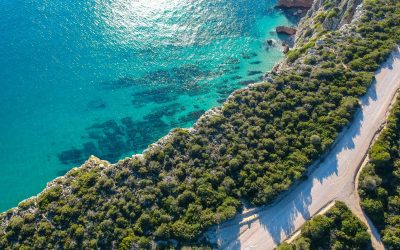Under Portugal’s Non-Habitual Resident Tax scheme, many foreigners (and Portuguese) relocating to Portugal enjoy for a period of ten consecutive and non-renewable years a set of unique tax benefits and exemptions.
Notwithstanding the above, there are five main things that one must be aware of before immediately applying for this unique set of tax benefits.
1. Portugal Non-Habitual Resident Tax Requirements
To successfully apply for Portugal’s Non-Habitual Resident Tax Requirements, the following requirements need to be met:
- Not have been deemed tax resident in Portugal in the previous five years (a tax residence certificate and proof of tax paid abroad may be required).
- Acquiring Portuguese tax residence. Either by having lived for more than 183 days (consecutive or not) in Portugal in any period of 12 months starting or ending in the relevant year; or having a house at any time throughout the 12 months, in such conditions that allow to presume the intention to hold and occupy it as the habitual place of residence.
- Non-EU/EEA citizens will need to obtain a valid visa from the Portuguese Embassy/Consulate of their country of residence that entitles them to have a residency permit in Portuguese territory. (e.g., a Golden Visa, a Passive Income Visa or another type of visa).
- EU/EEA citizens will need to obtain an EU/EEA Citizen Residency Certificate from the City/Town Hall with jurisdiction over their tax address.
- Apply for the registration as a Non-Habitual Tax Resident until 31 March of the year following that of registration as a resident (e.g. 2017– registration until 31 March 2018).
Recognition of the NHR status is not automatic and requires a formal application lodged with the Portuguese Tax and Customs Authority. In addition, documents proving tax residency in previous years (e.g., Tax Residency Certificates and proof of tax settlement abroad) can be requested in case of a random application audit. Having such documents with you at the time of application is crucial.
2. Beware of financial portfolio and crypto portfolio capital gains
Those residents holding NHR status avoid liability for capital gains tax on certain worldwide gains, depending on which jurisdiction has the taxing rights under the terms of the double tax treaty. Suppose income is taxable in the source jurisdiction (under double-taxation treaty rules). In that case, Portugal imposes no tax liability for non-habitual residents.
Notwithstanding the above, it is essential to mention that most tax treaties signed between Portugal and other jurisdictions give sole taxation responsibility to Portugal regarding financial portfolios and related assets. this means that: it is mandatory to aggregate income from capital gains on securities when the assets in question have been held for less than 365 days and the taxpayer has a taxable income that is equal to or greater than the value of the last tax bracket, which is currently EUR 75,009.
Taxpayer who finds themselves in the abovementioned predicament will lose the ability to choose the withholding flat tax rate of 28% and will instead be liable to a rate of 48% on profits gained with shares and bonds (plus a surtax of 2.5% or 5%, depending on whether or not it is applicable), on their capital gains.
The mandatory aggregation may not cover capital gains from the redemption of fund units in Portuguese investment funds, even if the criteria set out for this purpose are met. This is because the Statute of Tax Benefits (EBF), which governs how these types of income are taxed, is a special law different from the Personal Income Tax Code.
When it comes to capital gains from the redemption of units in foreign investment funds made by Portuguese tax residents, these funds are not subject to the rules set out in the EBF, so they will, in theory, be covered by the rule that the compulsory aggregation of tax returns, even if criteria set out in the EBF are met.
In short, starting in 2023, taxpayers with a taxable income of €75,009 or more will have to aggregate their capital gains from movable assets to the total income received to determine the tax rate applicable to their total income. Before that, it was up to them whether or not to do this.
As for the taxation of crypto capital gains, please refer to our article on the matter.
Given the above, should one wish to make the most of the exemptions granted under the NHR scheme, income structure analysis and restructuring, should it be the case, must be carried out before the NHR status application.
3. NHR status holders must report their worldwide income in Portugal
NHR status holders must report their worldwide income in Portugal, even if it is subject to flat tax rates or exempt from taxation in Portugal. This is because, under Portuguese Tax Law, all those qualifying are residents, for tax purposes, in Portuguese territory must annually file their personal income tax returns to the Portuguese Tax and Customs Authority.
It should be noted that those who fail to file their tax return or file it after the legal deadline will be subject to the payment of a fine, which, under the terms of Article 116 of the General Taxation Infringements Law (RGIT), can be between €150.00 (one hundred and fifty euros) and €3,750.00 (three thousand, seven hundred and fifty euros).
4. Talk to a tax advisor before applying for the benefits under the Portugal non-habitual resident tax
It may sound cliché, but hiring a tax advisor before your relocation to Portuguese territory is essential to understand your current income structure, whether it is compliant with the NHR exemption and what can be done so that you make the most out of the regime.
Our team at MCS is composed of four English-speaking lawyers whose careers have always been tied to advising expat clients investing in Madeira Island.
5. Inform your country of residence
Upon becoming a resident, for tax purposes in Portuguese territory and having applied for NHR status, you must inform your former country of residency that you no longer qualify as a resident for taxes in said country. We suggest contacting a local tax advisor in your country of residence on how to proceed concerning this matter.
This article is provided for general information purposes only and is not intended to be, nor should it be construed as, legal or professional advice of any kind. Should you have any questions, please do not hesitate to contact us.

Ambrosio Jardim has, since 1998, worked mainly in the areas of commercial law (corporate, mergers and acquisitions, joint ventures, restructuring and planning), national and international tax law and real estate…. Read more




